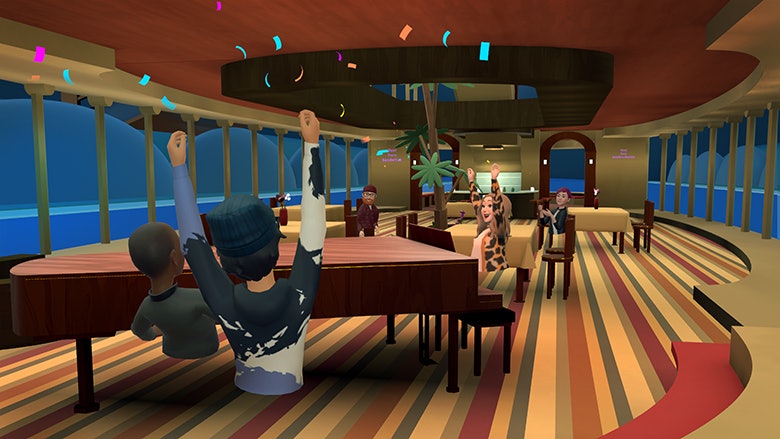
Second Life will soon face off against Meta on its home turf.
Linden Labs, owner-operators of the platform since its launch nearly two decades ago, announced this week that a mobile version of Second Life is coming to smartphones and tablets. A similar expansion plan (for those keeping score), to the one Meta hopes to make with Horizon Worlds, its VR-first social platform for the Quest 2 and Quest Pro.
For Second Life, heading to mobile devices gives it access to an audience of millennials and younger people who might not have tried the platform on macOS, Windows, or Linux. For Horizon Worlds, becoming a free mobile app is a way to pique the interest of anyone turned off by wearing a VR headset. Assuming the platforms launch around the same time on mobile devices, they’ll also illustrate significant philosophical differences between the two platforms, ones that Second Life seems to set up to win.
There Are Legs
The mobile version of Second Life only exists in a rudimentary state, based on video Linden Labs released to announce the project. In their first draft, the developers focused on the two things that make Second Life distinct: detailed, frequently surreal avatars and worlds. The result doesn’t compare to what’s possible on a modern console or PC today but is a real step up from what you can currently get from Horizon Worlds, which famously doesn’t even render users’ legs.
And the visual experience is just the tip of the iceberg regarding how differently Second Life treats users' experiences compared to Horizon Worlds. You can have a tail, look like a supermodel, or basically be anything, and the platform’s more laissez-faire approach to content moderation means certain “mature” experiences are available, something that will likely never be allowed in Meta’s metaverse.
Now, one assumes that these will also be inaccessible in the mobile version of Second Life, given the App Store and Play Store’s policies. But the point stands. Second Life, despite not being as ambitious as Horizon Worlds, has a real headstart in building a community with a culture and digital worlds worth playing in.
Is the problem access or interest?

In fairness to Meta, the pitch on what the metaverse will be — a replacement or evolution of the mobile web — is bigger than avatars and worlds. But considering more futuristic augmented reality applications are still ways out, we have to judge the company by what it’s sharing now, a second-rate Second Life that might potentially be as monetarily extractive as Linden Labs' creation is but by no means as free-wheeling or expressive.
This begs the question, is the problem keeping Horizon Worlds from catching on really based on access or something larger? Maybe the opposition is to the idea itself, how Meta thinks people should hang out online. That problem is much harder to fix and should become clearer once Second Life and Horizon Worlds co-exist on the same hardware.







